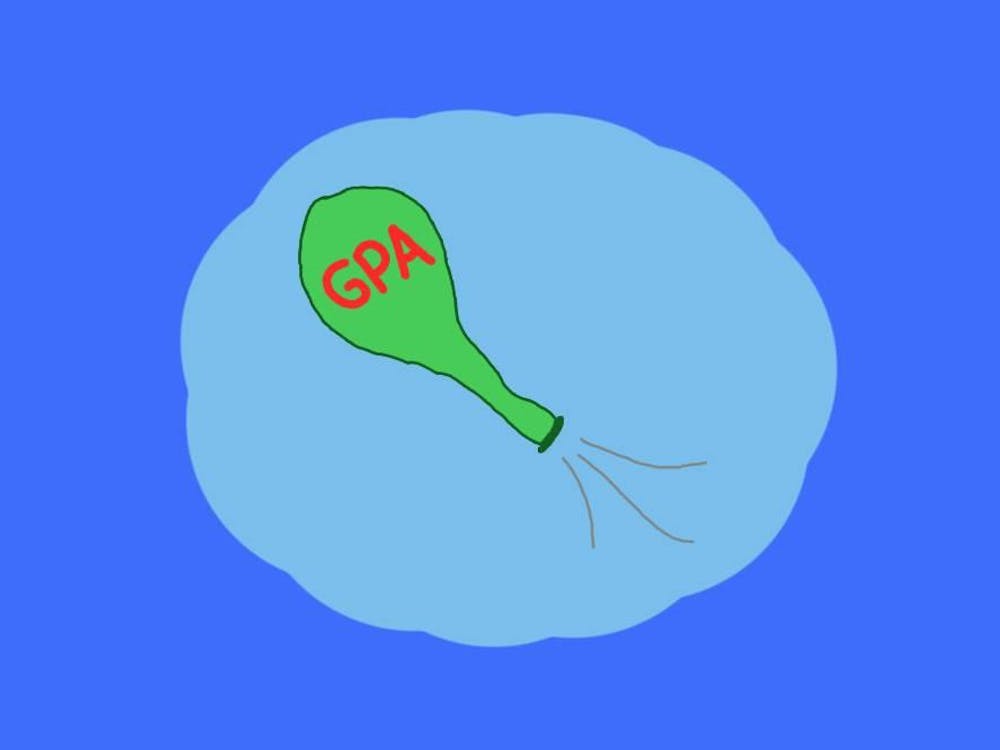ONE OF the downsides to receiving an education at the university level is that students often become blinded to some of the less esoteric lessons they should be learning. The amount of information crammed into our minds during class periods spent discussing Sophocles or Pauli gives us the impression that the act of absorbing this staggering flow of data is the essence of learning.
One of the more important challenges facing students at a college level is that of transformation -- getting ready to enter the adult world. One does not receive a "you are an adult now" card at high school graduation. People continue to learn and mature almost as rapidly in college as they do in adolescence. It is, therefore, important that a university devote some effort to teaching its students how to be good citizens. Apparently, the administration here at the University has forgotten that one of the principal methods of teaching this sort of thing is by example.
Take being a good neighbor, for example. The University's relationship with the community is less than ideal to start off with, of course. It's because of the University that Charlottesville is a "college town," with many of the negatives that name brings. Those negatives are part of the reason the town has difficulty attracting and holding on to the middle-income permanent residents it wants. The city is concerned that the amount of owner-occupied homes in Charlottesville is on the decline, due to the increasing number of single-family homes being converted into rental units for students. So it only adds to the frustration of residents when the University simply turns a deaf ear to their concerns.
In 1997, the Department of Neighborhood Planning and Development Services requested more on-Grounds housing to reverse the trend, and also indicated a desire for the University to be more involved in off-Grounds housing. The University plans to begin construction on new upper-class housing in 2001 -- a full four years after the city's request.
When the Jefferson Park neighborhood residents complained about the ugly new wall that the University was putting up as part of the Scott Stadium expansion, the response was underwhelming. The treatment of this matter by the Board of Visitors was nothing less than a brush-off. The problem was anticipated and should have been forestalled, if the University was interested in being a good neighbor. Of course, the ugly wall is not the only problem. At this point, however, resolving the complaints generated by the new parking garage behind Bryant Hall is impossible. One shouldn't expect the administration to do anything about the speaker volume, either (people can hear the stadium play-by-play clearly from the steps of Cocke Hall). Rather than being a good neighbor, the University is behaving more like the guy next door who never mows his lawn and plays his stereo as loud as humanly possible.
Of course, the University doesn't do such a stellar job of running its own house, either. The eviction of student groups from Peabody Hall shows an appalling lack of respect on the part of the administration for the students. Contracted Independent Organizations that have had rooms there for as long as can be remembered are now scrambling for the tiniest bits of space around Grounds, while others who have been kicked out of their spaces in Newcomb to make way for the evictees make do with crates in a closet.
The University's response to complaints seems to be essentially, "tough, deal with it." That's not good enough. The students ought to be the entire focus of the University. And that means that the problems caused them by the administration deserve more than the ad hoc treatment they have been given so far.
The administration, through all of this, seems to be putting itself first. Whether it's lowering its costs by ignoring the people who live near Scott Stadium, or making itself more comfortable by giving the students it claims to respect the boot, the administration has not acquitted itself well in the past few months. Its behavior shows all the selfishness of a young child who hasn't yet learned how to share.
Higher learning does not just involve what you get when you're in the classroom. Some of the most important lessons you learn in college come from the process of maturing and learning how to interact with others. The administration ought to try and set a better example for the students to follow.
After all, it's hard to mature when your role model behaves like a petulant child.
(Sparky Clarkson's column appears Tuesdays in The Cavalier Daily.)




